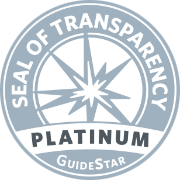Angel Connell, is the JAG Specialist in Varnville, South Carolina. JAG provides student-centered programs to ensure youth achieve their fullest potential by focusing on academic success and career readiness skills. Angel also serves as the Program Advisor for Wade Hampton High School's Students In Action team. The team, which includes Destiny and Janiyah, created and maintained a community pantry in their school, providing canned goods, non-perishable food items, and toiletries for needy families in their community. They have also partnered with Clemson Extension and Katie’s Krops, an initiative founded by Jefferson Award recipient, Katie Stagliano to build and maintain a community garden.
We asked her a few questions to learn more about how her service work and racial identity intersect! Check out the Q&A below.

Why is it essential for the community of people activating service to others to be a diverse group of people?
It is essential for the community of people activating service to others to be a diverse group of people because it helps dispel negative stereotypes and biases about different groups of people. Cultural diversity also gives us the opportunity to respect and recognize “ways of being” that are not necessarily our own.
In your opinion, what is the biggest/most significant impact service to others can have on Black communities? Why?
The most significant impact service has in the Black Community is that it strengthens the ties to the community and broadens the support network especially for our Black youth.
Why have you chosen to prioritize service to others and recognition in your work as an educator?
In my work as an educator, I have chosen to prioritize service & recognition to inspire my students to find compassion and understanding for others. Service has never been about validation but the fact that it signifies for my students, the value of who they are or can be in someone’s life and vice versa.

How have the COVID-19 pandemic and the violence against Black Americans affected your ability, willingness, or desire to serve?
The pandemic and violence against Black Americans have made me strive even more to serve the people in my community.
What is your earliest service-oriented memory?
My earliest memory of service-oriented work is in 1989 after Hurricane Hugo hit in SC. My family and I were living in NJ and we worked with others to collect supplies to bring to family and friends in SC.
How does your racial identity affect your experience as an advocate for service to others?
Though race may not be a privilege for me, my identity has made me aware of places that I do have some privilege. My community being that place. I can connect and understand the resources needed in my community. What I’ve learned, pushed me to advocate for my community to remove barriers that mays cause my community to lack.
Our blog series, Exploring the role of service in the Black Community, is an interview series with participants from our Students In Action, Media Partner, and Recognition Champions programs. For the next three weeks, we're giving the Multiplying Good community an intimate look into how their unique experiences and racial identity impact their service work.
The blog series will culminate with a Facebook Live conversation among all the participants. It will be held on Thursday, February 25, and moderated by Mr. Taj Tashombe, Vice President of Government Affairs, Oakland Athletics/Multiplying Good Bay Area Board Member. Like our Facebook Page to get notified when we go LIVE so you can tune-in.


